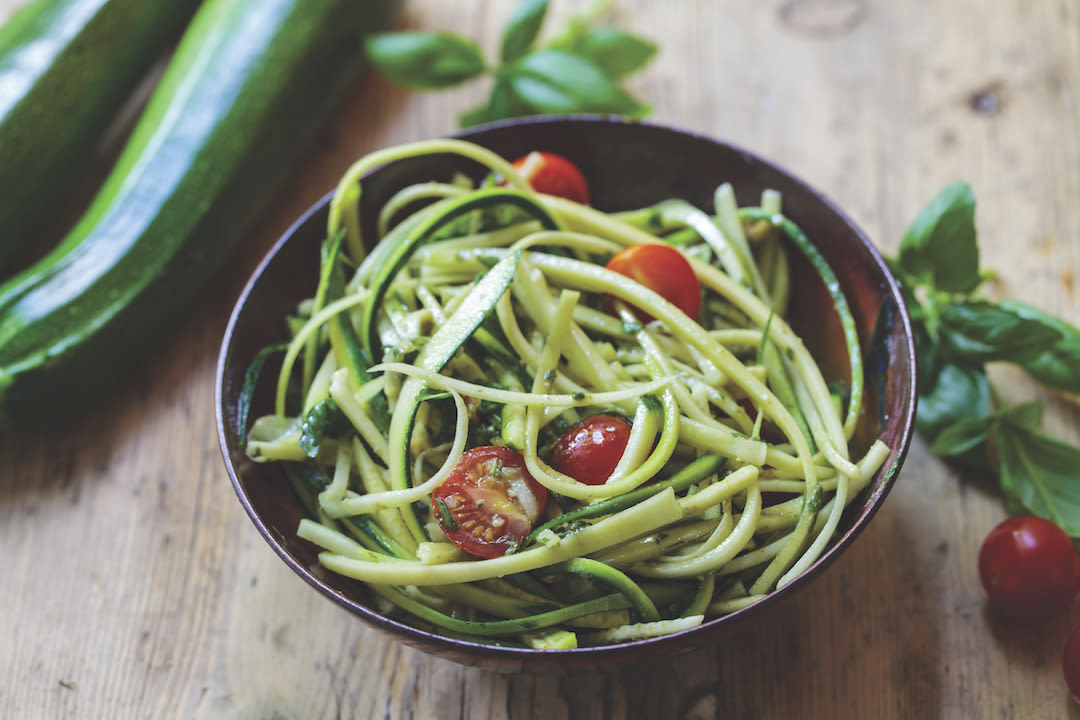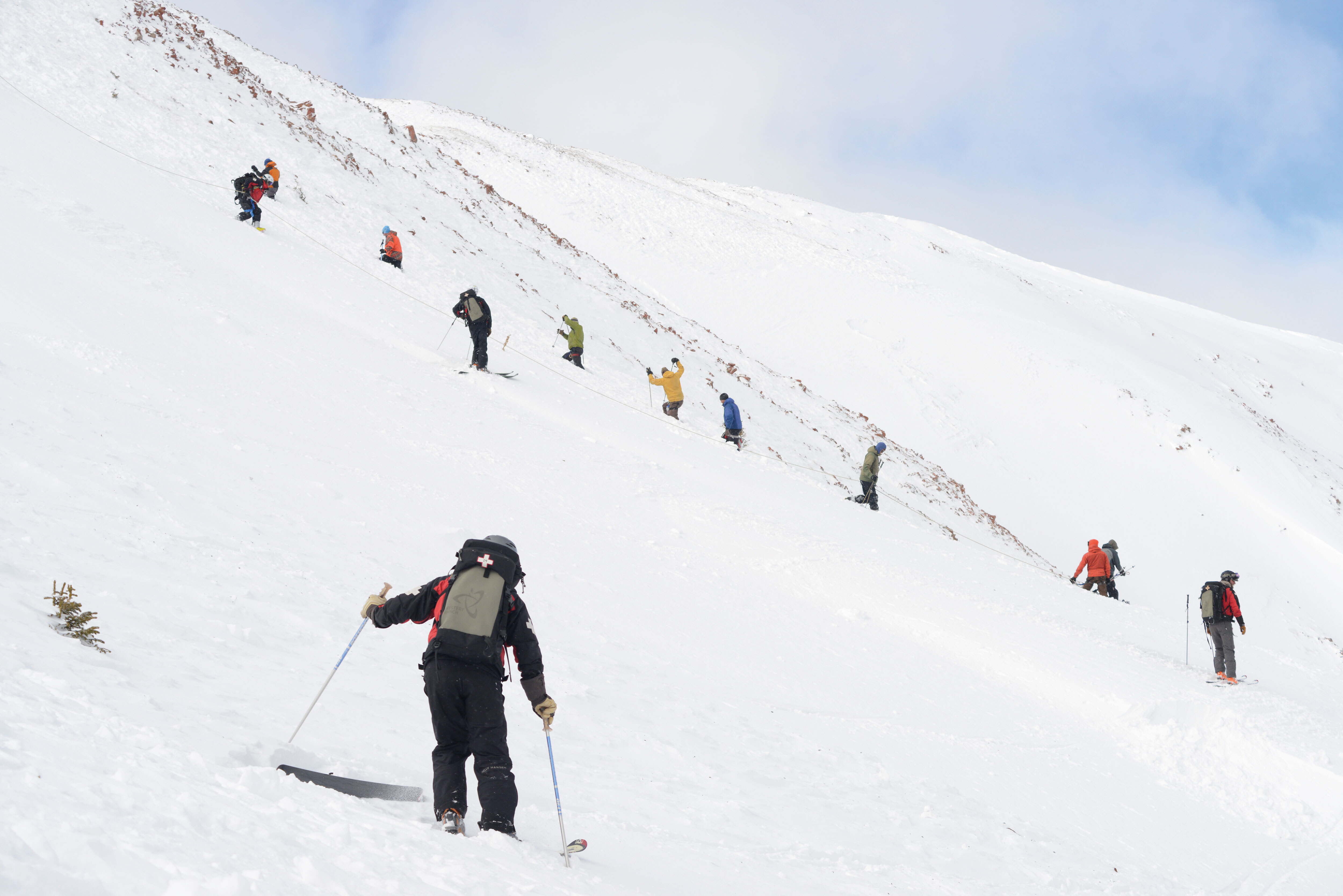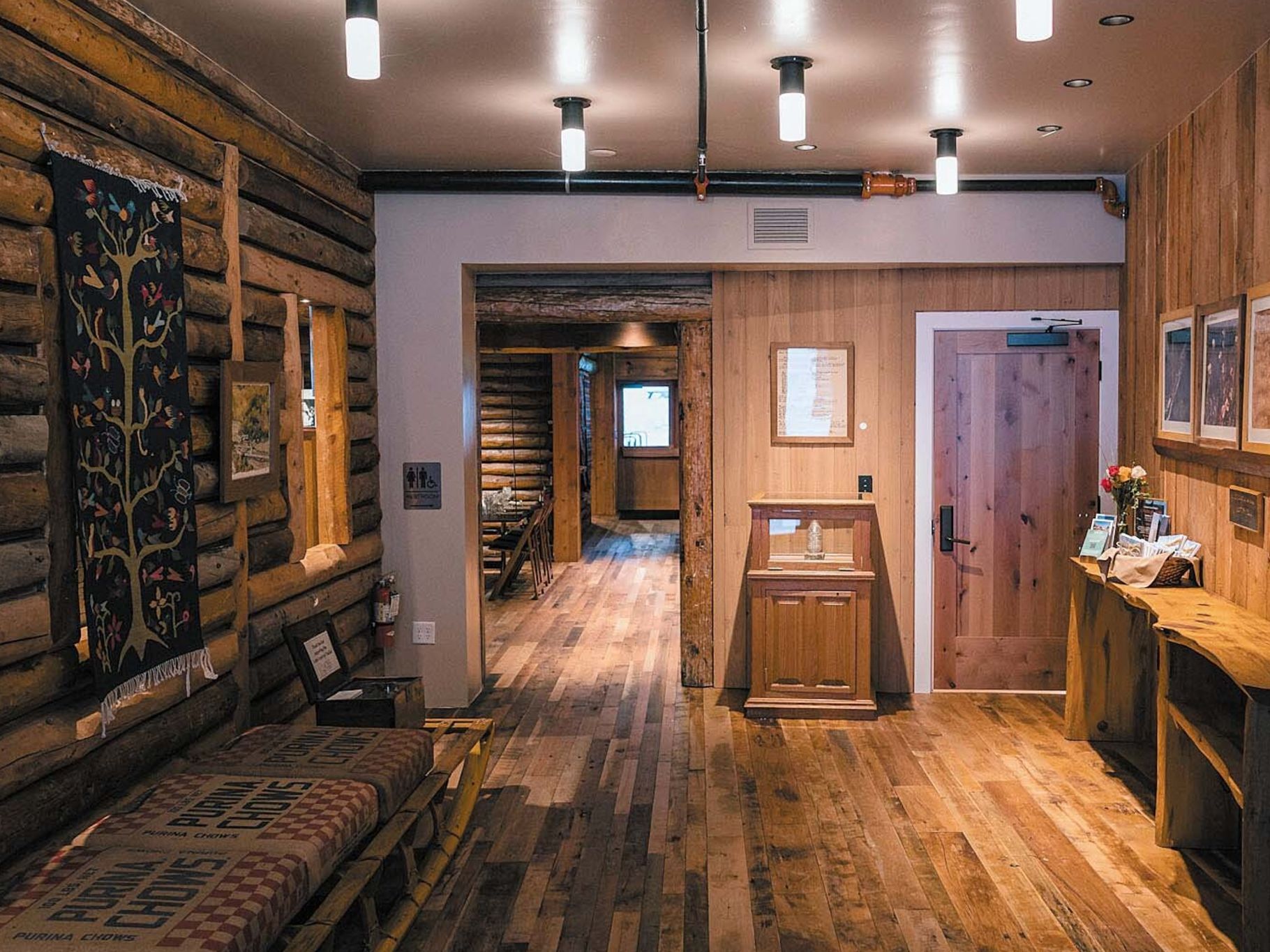Where to Eat Raw in the Roaring Fork Valley

Zucchini "pasta"
Image: Courtesy shutterstock.com
Last summer, Carbondale’s True Nature Healing Arts hosted a seven-course tasting of raw food during the wellness center’s annual Sacred Fest. During the dinner, True Nature Kitchen chefs David Avalos and Pam Davis showcased the versatility of uncooked fruits, vegetables, nuts, seeds, and other vegan ingredients—foods deemed high prana (Sanskrit for “life force”)—in dishes such as jackfruit “crab cake” and lasagna made of coconut-based sheets layered with sliced vegetables, cashew “ricotta,” and a sauce of puréed red bell pepper. Diners unfamiliar with raw cuisine were impressed—surprised, even—that these plates packed such a flavorful, fulfilling punch.
Raw foods taste fresh and vibrant, of course, because they retain all of their vitamins, minerals, and nutrients, some of which, like vitamin C and folate, are heat-sensitive. And with farmers’ markets now in full seasonal swing, area menus are showcasing the bounty.
Last winter, Jus Aspen opened in the Ute City building, run by Leigh Davison and Tamara Petit, formerly the sous chef at the St. Regis Aspen Resort and concierge manager at the Hotel Jerome, respectively. Now the partners are expanding their menu of cold-pressed juices, smoothies, salads, and sandwiches to include more substantial grab-and-go meals unadulterated by heat: cauliflower “couscous” with locally sourced tomatoes and torn basil, fruit and yogurt bowls with raw cacao sauce spiked with maca (a cruciferous root grown in the Andes) and coconut oil, and coconut-sheet wraps stuffed with colorful sliced vegetables. Jus is also dehydrating juice pulp into crisps studded with chia, flax, and pumpkin seeds. Raw ingredients, Davison says, are chock-full of energetic components that fuel an active lifestyle.
“When you heat food, you change the molecular structure,” explains chef Bryan Nelson, who leads plant-based culinary classes at the Cooking School of Aspen. “It’s important to include raw food in your diet.”
Basalt-based Shelly Matlock (comeonecomeraw.com) makes it easy for folks to go raw. She delivers uncooked meals by request and leads informal food preparation classes. She also stocks a fridge at Basalt’s Burn Fitness Studio with items for purchase, and her chia-seed breakfast jars flavored with bananas, berries, and matcha are newly available at Market Street Kitchen in Willits.
Notes Matlock, “When people think raw food, they think salad, salad, salad.” Her offerings prove otherwise. For example: “I make tamales with mole completely from vegetables, nuts, and seeds,” she says.
While consuming raw produce in the Roaring Fork Valley is a snap in summer, it’s a lofty proposition once the snow falls. Yet Nelson, formerly chef de cuisine at Pacifica, points out that raw food is not limited to crudités. “I do a ton of crudo and tartare,” he says.
Meanwhile, back at True Nature, chefs Avalos and Davis have embraced another healthful trend by creating a line of wellness beverages. Original offerings include jun, made of green tea fermented with honey and probiotic cultures; chai-spiced nut milk; and a vibrant tonic they call Young Organic Coconut Rehydrate. In fact, the chefs have scrapped their solid food line to focus on cold-pressed elixirs instead—demand is simply too high. Now, six types of True Nature Kitchen bottled drinks will be stocked in 80-plus stores, including Whole Foods and Vitamin Cottage. Yet fans of True Nature’s raw items need not totally despair: the company’s addictive treats, made of raw cacao with unrefined sweeteners, remain on the menu.













































